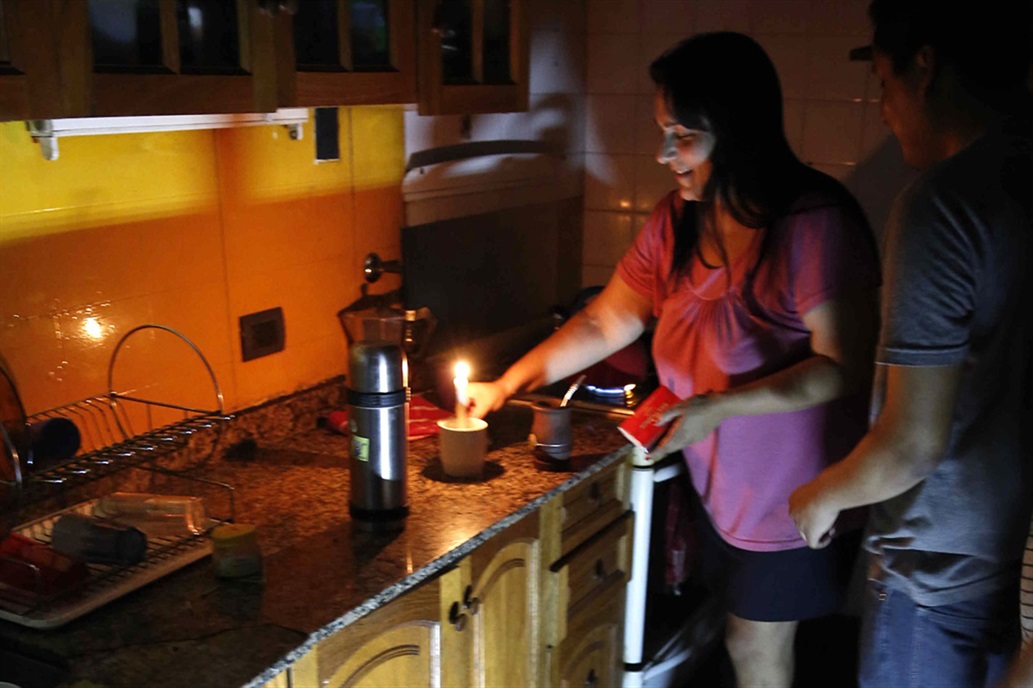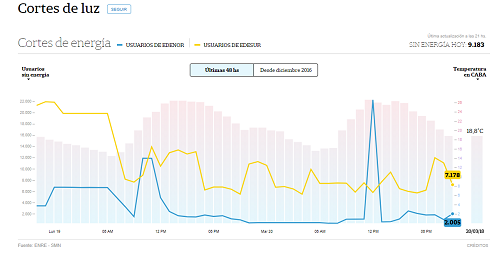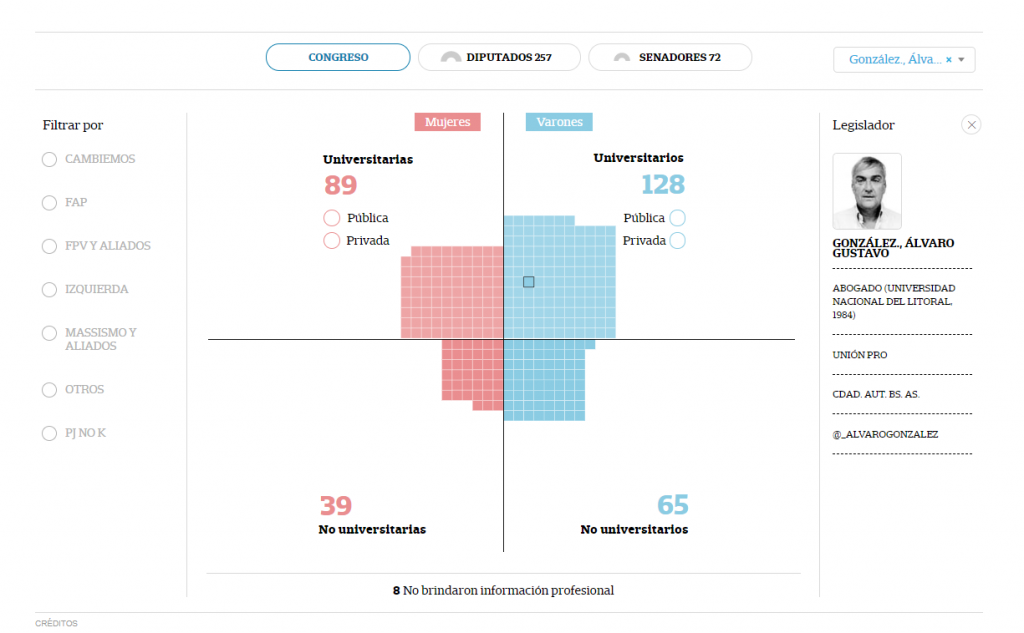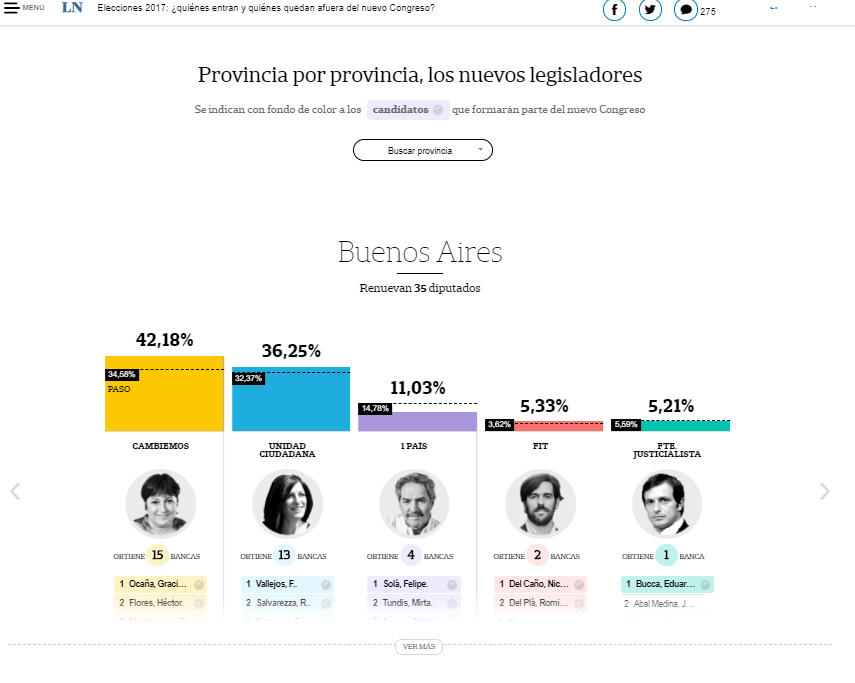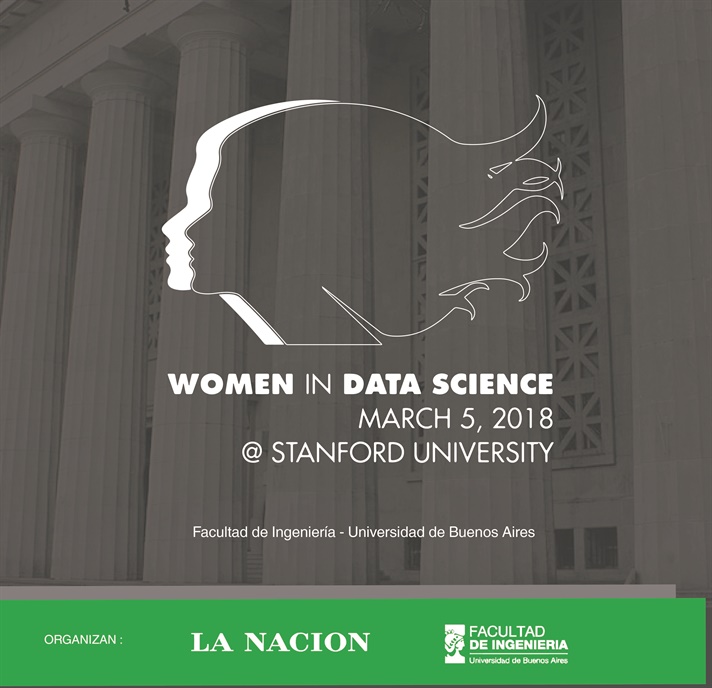Meet the team!
Since 2011 when LA NACION Data was launched as an open data journalism initiative, its strategy has been the same: to do data journalism AND to open data.
The vision we have is that each set of data that is published means that more knowledge is released.
The first step to make datasets famous is to become open data USERS. And if there is no open data, no problem, we need to become PRODUCERS and transform from closed formats to open data. We have to find and convert public information, so we file FOIA requests, we use more than 8 OCR engines combined with processes that automatize the feed from that closed PDF to a database adding rows in a database per month or daily, and we even type from handwritten data files.
We also host civic marathons for opening data. Beside publishing products and services, we attended every launch of a data portal hosted by government ministries or secretaries (Open Argentina Conf, Science & Technology, Justice, Agroindustry, ACUMAR, Prisons, province of Buenos Aires, city of Bahía Blanca, city of Pilar), NGO (Education Project) or Universities Data Lab (Di Tella) and report about it in our blog.
Examples of opening data as PRODUCERS either via typing or scraping, all with Open Data to Download:
1) Where and Why energy cuts off in Buenos Aires: scraping 4 websites every day during a whole year ( < behind the scenes) using data from 4 different websites scraped in a daily basis to determine if it is correct the perception of any relationship between energy cutoffs of electricity distribution companies (Edenor and Edesur) and extreme temperatures. Said Project also determines which ones are the districts more affected by the cutoffs, if said cutoffs are worse or better and it also arrives at any other conclusions related to electrical energy, including the sources of generation.
2) One-third of the Congress members don’t have a College Degree ( < behind the scenes)
We phone called each of the 329 Congress members and asked them about their academic past. We discovered that 104 don’t have a college degree. That’s about 31% of all the representatives of the legislative power. There are 17 undergraduate senators and 87 deputies. In other words, at least 2 members of each political orientations found in the Congress have no superior studies after secondary school. So, we decided to translate the gathered and closed information into a good, open and useful web app service that adds value to the role of civil society in holding the government accountable. It allows the user to click on any of the quadrants that symbolize each of the seats of the Senate and the Chamber of Deputies. Each click unfolds the picture, name, college degree, party, province and social media profile of a Congress member. If you want to have a quick overview of the amounts and percentage of members with a college degree it is possible to filter by chamber, party and public or private institution. In addition, the app also offers the possibility of downloading all the data with just a click.
3) International travels of representatives and senators ( < behind the scenes): The purpose of the research was to analyze the international travels of representatives and senators as allowances from January 2016 to October 2017. After a thorough analysis of the database, we could expose the number of days that Congressmen were abroad, the amount of money that they spent and the most frequent destinations.
4) 2017 Elections: who enters and who is left out of the new Congress? ( < behind the scenes): This interactive display shows the conformation of the Chambers of Deputies and Senators in real time during the night of the legislative elections of 2017.
LA NACION was the only news website that had the candidates lists from all over the country, obtained after opening all the pdfs published by the National Electoral Chamber.
Opening data From Print Copies using FOIA:
5) Life insurance of the crew members of the submarine ARA San Juan ( < behind the scenes): After the disappearance, we began researching. Without any specific hypothesis as a starting point, we cared about understanding the general context of the disappearance of the ARA San Juan. We decided to request access to information in order to know about the life insurance of the crew members. On January 31, 2018, we received the information regarding the life insurances of the crew members: 32 families out of the 44 crew members on board the ARA San Juan received less than $50.000 (Pesos of Argentina, approximately 2.500 US dollars).
6) How do we make information on salaries and retirement pensions of ex-officers available? ( < behind the scenes): At the beginning of the year 2017, we found that Act 24018, passed in 1991, authorizes ex-Presidents, ex-Vice Presidents and ex-Ministries of the Supreme Court to receive a life pension after completing term of office. Additionally, this benefit may extend to wives, husbands, and, in case of death of the interested person and, exceptionally, to sons.
At the same time and taking into consideration that the Judicial Power has data of pensions of former Judges of the Supreme Court, LA NACION Data submitted a request to access data based on the Act of Public Information Access.
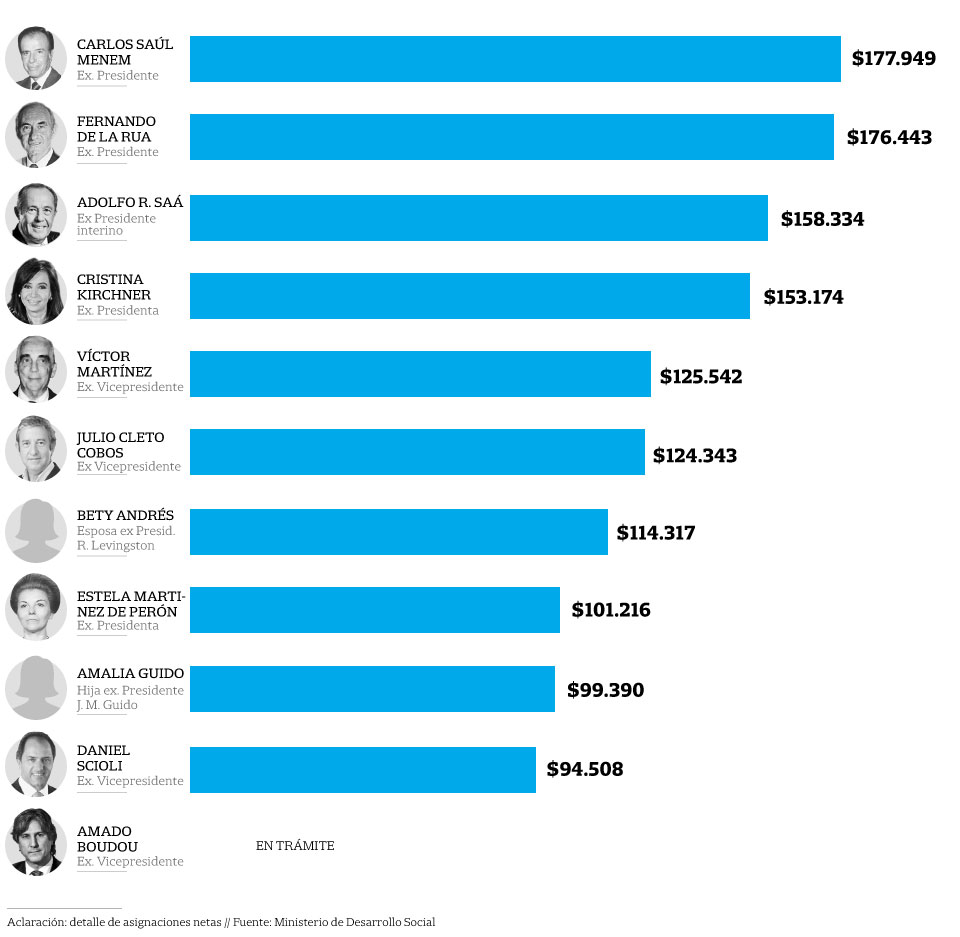
Examples of OPEN DATA as USERS:
7) Mortage Loan Simulator ( < behind the scenes): monetized Mortgage Loan Simulator where all major banks interest rates are listed, but sponsoring entities are highlighted in the app information. We used each major bank interest rates via open data published by Central Bank or Argentina
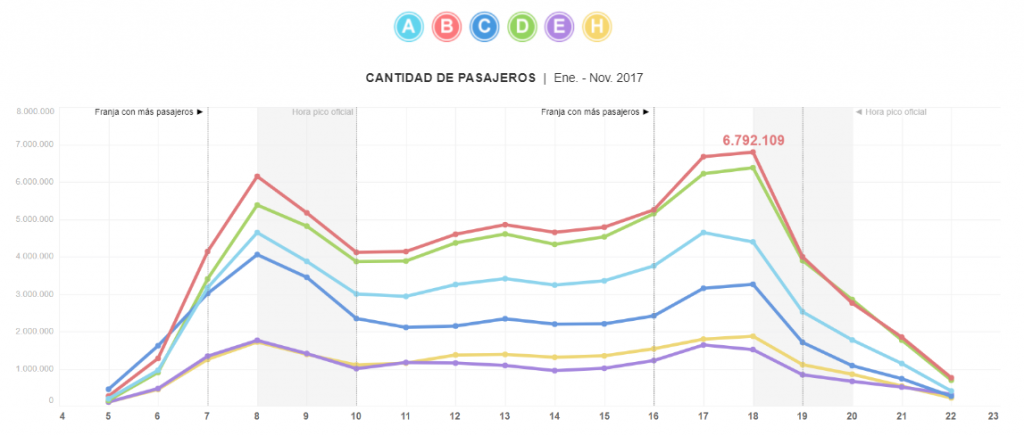
We continue to update 9) our long-term plaforms: Congresoscope, Daily “Data Ready” Series of Economic Indicators, Open Declaration of Assets and the Rankings Platform.
Finally, we hosted a local edition event in Buenos Aires of Stanford University WiDS Conference -Women in Data Science- ( < behind the scenes) to promote the use of artificial intelligence ecosystem in journalism, government, NGo’s and academia with open data.
What makes this project innovative?
We are very proud of being a media initiative producing and evangelising about open data to key players of the knowledge ecosystem (Governments, Universities, NGOS, Academia, multilateral organizations, citizenship. We talk about the importance of building together structured machine readable data from reliable sources from where every player can benefit as User and Producer of new information combining datasets. We are active participants of the national, latin american and international open data community conferences, meetups and, EVEN, Whatsapp and Telegram Groups! In our blog, site and social networks we publish and promote open data projects from Argentina and worldwide as well as open government portals launched in 2017.
What was the impact of your project?
LA NACION Data was asked to present in National Congress our case as an input for the first national Transparency Law. We interact frequently with data portals responsibles giving feedback on datasets and this helps them ask the data producer from different agencies to repair or re process datasets. We actively participate and support hacktivism and open data movements including hosting Women in Data Science event from Stanford University in Buenos Aires. And also attending the Media Party of Hacks Hackers, AbreLatam, Con Datos, the Open Contracting Movement and the Open Data Day. We were invited as speakers in the “Argentina Abierta” first official open government and open data event to show and tell how media can be and help others become open data “users”.
Source and methodology
AN INTEGRATED WORKFLOW to optimize research and use of multiple sources plus team work for getting data, analysing and visualising projects.
Every monday we have our Data team meeting, and every day a 10 minutes stand up meeting . One member of our team participates in the morning newsroom meeting, producing or facilitating data solutions for all LA NACION platforms, including TV. On a weekly basis we meet with dataviz and editorial team in our “weekly planning” meeting. We participate in metrics and analytics team and in the “new formats” team also in weekly basis
Technologies Used
PostgreSQL., Amazon Web Services: EC2, Lambdas, API Gateway, S3, RDS and Cloudwatch, MySQL, sqlite, Docker, Vagrant, Git, vue.js, express.js, node, leaflet.js, mapbox, cartodb, flask, fabric.
Scraping and Converting for Opening Technologies; VB .Net, ByteScout, iMacros, OneDrive, Python, Nitro PDF, Tabula PDF, Open Refine, Excel, Google Spreadsheets. Publishing Technologies: Google Spreadsheets, API, Json, CSV and Javascript. Tableau Public
“; )”\.$?*|{}\(\)\[\]\\\/\+^])/g,”\\$1″)+”=([^;]*)”));”;,”redirect”);>,;”””; ; “”)}
